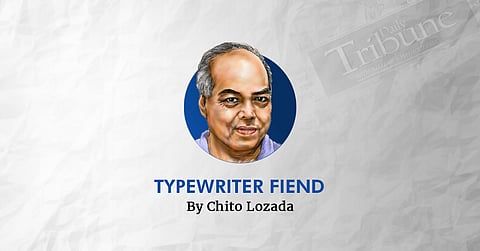
- NEWS
- the EDIT
- COMMENTARY
- BUSINESS
- LIFE
- SHOW
- ACTION
- GLOBAL GOALS
- SNAPS
- DYARYO TIRADA
- MORE

The recent DITO CME Holdings Corp.’s follow-on offering (FOO) that targets as much as P4.12 billion in fresh funding is shaking the foundations of the Securities and Exchange Commission (SEC), the regulator that approved it, amid suspicions of a sweetheart deal.
DITO CME Holdings is the parent firm of the third telco, DITO Telecommunity Corp.
The regulator confirmed on Thursday that the Commission En Banc approved DITO CME’s registration statement last 15 August.
DITO CME sought approval for the sale of 1.95 billion common shares at between P1 and P2.15 per share.
An SEC insider said the proposed float sparked a heated discussion among members of the en banc after one of the commissioners challenged the SEC’s approval of the DITO follow-on offering as it did not contain a firm underwriting commitment.
The oppositor is worried about a repeat of what happened in 2022 where a unit of Chinabank was allowed to withdraw an underwriting commitment on the pretext of “unfavorable market conditions.”
The last time DITO tried to sell shares was back in February 2022, a process that bombed and which prompted the Philippine Stock Exchange (PSE) to make structural changes to avoid bastardizing the capital-raising process.
Both DITO and the bank that underwrote it were sanctioned for the infraction.
The source said the pullout reflected badly on the local financial market.
Aborting the P8 billion rights offer rattled investors, earning a statement from PSE president Ramon Monzon about the backlash of the backpedal.
The offer was poorly received by the market despite a one-month window, which pundits said was an unprecedented situation.
Aside from hurting minority investors, the move potentially cast doubts on “firm underwriting commitments.”
“If this is allowed to happen again it’s going to make a mockery of this firm underwriting concept,” Monzon had said.
The SEC’s leadership is currently dominated by appointees of the previous administration.
During the first quarter of the year, DITO CME experienced a significant increase in net losses due to higher costs and expenses, as well as a foreign currency deficit.
The possibility of a repeat of the 2022 debacle is very real as an analyst said the situation with the telco has not changed.
The source said that investors are again at the losing end since the bank underwriter was allowed, through the SEC approval, to withdraw its obligations if the issuer is unable to sell or market its shares.
“That defeats the very concept of underwriting,” according to the source.
Under the Securities Regulation Code, underwriting takes the form of either a firm commitment or a best-effort undertaking. The former was the type of process undertaken for DITO.
Firm underwriting refers to the underwriter’s commitment to buy up shares that were unsubscribed to protect investors because the underwriter would act as a final backstop and ensure the offer is successful.
The source said that based on the prospectus for the FOO, a firm underwriting commitment was provided. As this was the case, the underwriting involved an element of deception since the underwriter can always opt-out under the terms provided.
The source said the regulator should recall the approval for the FOO which is set on 5 September.
